SEOUL, South Korea — A few years ago, when I was a reporter working in Pyongyang, North Korea’s capital, I went to visit a kindergarten. While I was there, I picked up a children’s book called “A Hedgehog Defeats the Tiger.” It was a tale, a North Korean told me, about a feisty little hedgehog that bests a much larger and fiendishly ravenous tiger using the only weapons at its disposal: the small but sharp quills on its back. The tiny but clever hedgehog pounces on the big nose of the blundering tiger, blinding him into submission.
“Do you know who the tiger is?” the North Korean asked me, an American, with a slight smirk.
From kindergarten classrooms to the halls of power, this is how North Korea views itself: as a scrappy little country that has been bullied by the United States for far too long and is willing to fight back. North Korea takes pride in standing up to its much larger archenemy. That is why the Korean War armistice of 1953 — a truce that was seen in Washington as a failure to bring the conflict to a close and to stop the march of communism in Asia — is celebrated in Pyongyang as Victory Day. To fight the United States to a draw is tantamount to victory, as far as the North Koreans are concerned.
If President Trump thinks that his threats last week of “fire and fury” and weapons “locked and loaded” have North Koreans quaking in their boots, he should think again. If anything, the Mao-suit-clad cadres in Pyongyang are probably gleeful that the president of the United States has played straight into their propaganda. They know that their country is a tiny hedgehog, but it seems to have disturbed the tiger.
Inside North Korea, this propaganda is everywhere: The big, bad United States is preparing to attack us, and our leader, Kim Jong-un, is building nuclear weapons to defend us. With his threats, Mr. Trump has given Mr. Kim exactly the justification he needs to keep his nuclear and missile programs going, even as his countrymen go hungry.
From the time they are toddlers, North Koreans are raised to see the United States as their enemy. At that same kindergarten, there were two rooms devoted to teaching children to hate Americans. The walls of one were plastered with posters depicting American missionaries torturing boys tied to trees and hooked-nose American soldiers setting wild dogs on Korean girls. A second room housed toy weapons with which children practiced stabbing and attacking the “imperialist aggressors.” It’s shockingly violent stuff for 4- and 5-year-olds, but it works.
A few years ago Mr. Kim poured millions of dollars into a museum in the farming town of Sinchon that serves as a mecca of anti-Americanism, a house of horrors with room after room cataloging — in full, bloody, life-size detail — the (largely unsubstantiated) war crimes pinned on the Americans. All spring and summer, students are taken by bus to the museum for field trips intended to scare them into hating and fearing the United States.
There is method to the madness. Mr. Kim is using the threat of attack from the United States to enforce a sense of unity among North Koreans. He knows that few things work better to inspire nationalism and patriotism than the threat of invasion. (Mr. Trump’s xenophobic presidential campaign suggests that he recognizes that, too.)
This propaganda is especially effective with Koreans, whose cultural identity has been shaped by thousands of years of aggression from outside forces: the Chinese, the Mongols, the Japanese, the Americans. That’s why Korea became known as the Hermit Kingdom. For centuries, long before the Korean Peninsula was divided, guarding against foreign infiltration was a national creed.
Now in his mid-30s, Mr. Kim inherited in 2011 the leadership of a people who didn’t know anything about him until three years before he took power, and perhaps were disgruntled by another hereditary succession. To maintain power and promote stability, Mr. Kim and his strategists have worked to obtain the modern equivalent of a hedgehog’s quills — nuclear weapons — and the simple narrative that with this “treasured sword,” and the clever wits of his atomic scientists, Mr. Kim will protect his country from imminent destruction by the “marauding” United States.
The regime has used this narrative to justify pouring more than a fifth of its meager national budget into defense at a time when millions of North Koreans go hungry every day, according to the World Food Program. The leadership also uses this David vs. Goliath narrative to explain to North Koreans why they must suffer ever-tightening sanctions that, if enforced, will make their already difficult lives even more onerous.
Mr. Trump’s fiery rhetoric mainly serves to advance Kim Jong-un’s agenda by giving him more reason and justification to build nuclear weapons under the guise of protecting his people.
This is not to say the North Koreans weren’t thrown off by Mr. Trump’s comments. No previous American president since Harry Truman has returned rhetorical fire with fire quite so enthusiastically, not even George W. Bush when he grouped North Korea in with the “axis of evil” in his 2002 State of the Union speech. And the North Koreans know they would quickly be overwhelmed in a conflict with the United States, which has stationed powerful weaponry in the Pacific and conducted sporadic flyovers of B-52s and B-1 bombers to remind and warn them.
But with nuclear weapons, they feel somewhat invincible. North Korea responded to Mr. Trump’s recent threats with a warning that it was devising a plan to fire missiles into waters near Guam, a United States territory with two military bases and 160,000 residents. Whether or not it follows through on that threat, the North will keep test-firing missiles, improving the technology with every launching.
The savvy move by Washington would be to find a face-saving way to back down from the escalating rhetoric and to stop giving Kim Jong-un what he wants: propaganda victories and a justification to keep building bombs and missiles.
But perhaps Mr. Trump is taking a page out of Mr. Kim’s playbook: He’s drumming up fear and provoking America’s enemies in order to distract from his own problems and establish his reputation as a leader who can defend his people, even if it comes at a cost to global peace and security.
Jean H. Lee, a former correspondent for The Associated Press, is a global fellow at the Woodrow Wilson International Center for Scholars.
Follow The New York Times Opinion section on Facebook and Twitter (@NYTopinion), and sign up for the Opinion Today newsletter.
A version of this op-ed appears in print on August 13, 2017, on Page SR1 of the New York edition with the headline: What Kim Jong-un Wants.



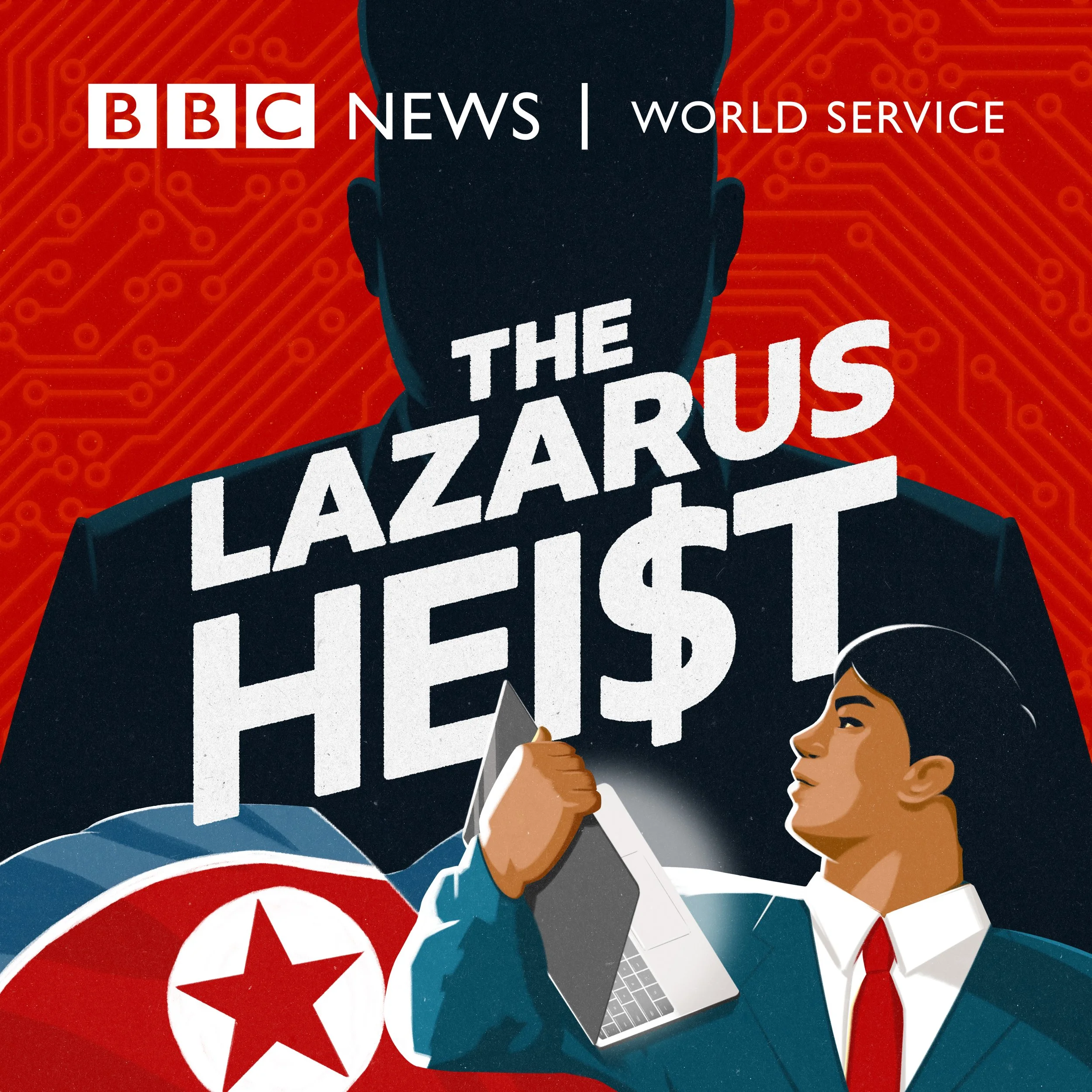

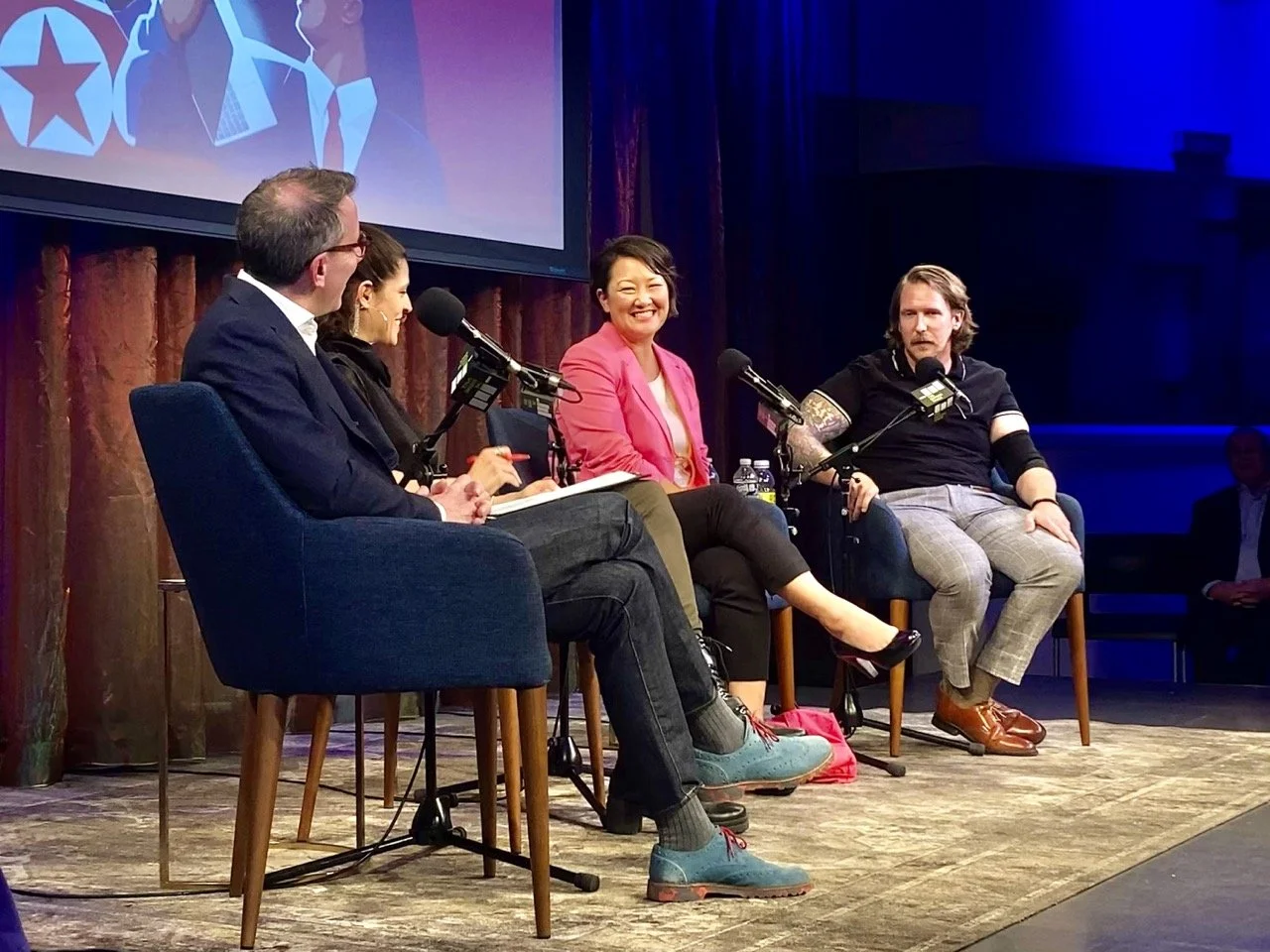
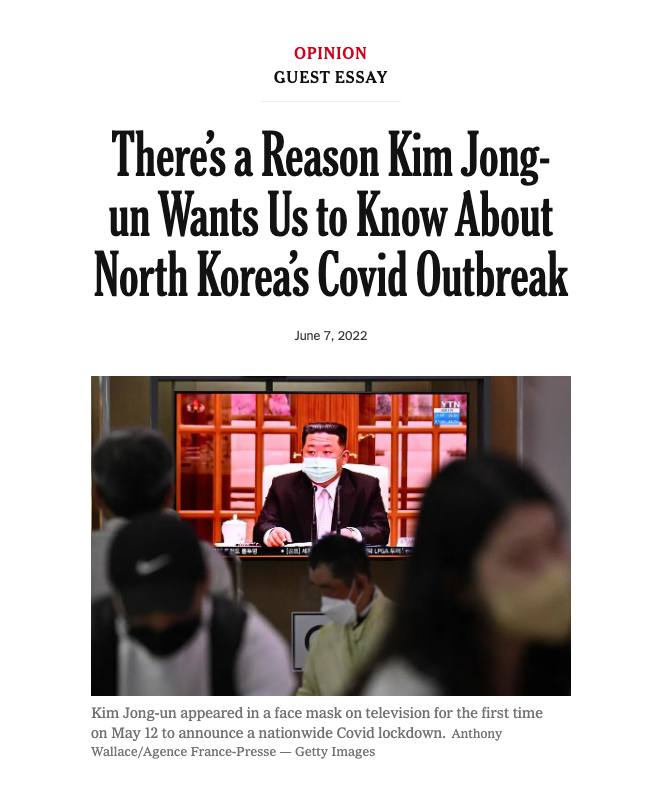

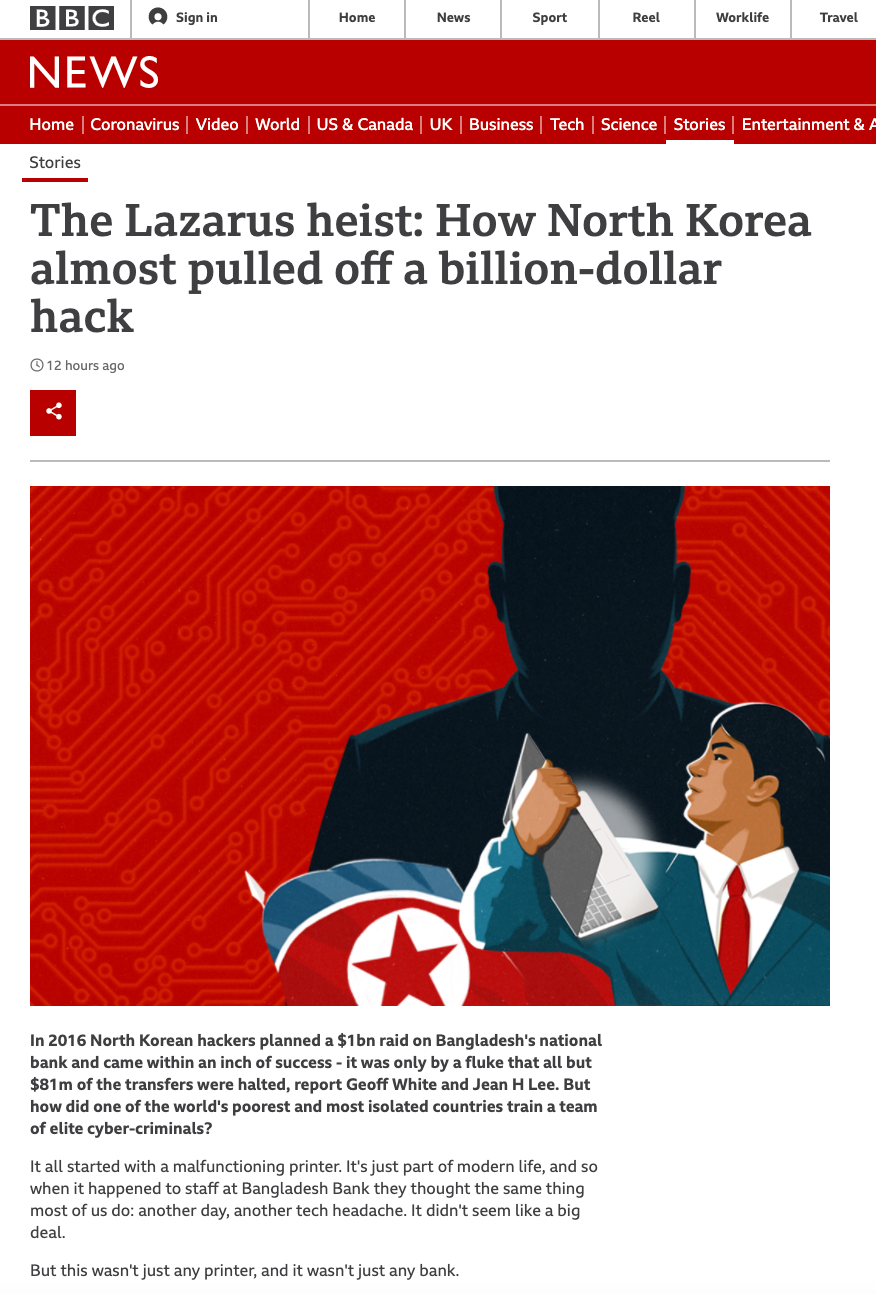
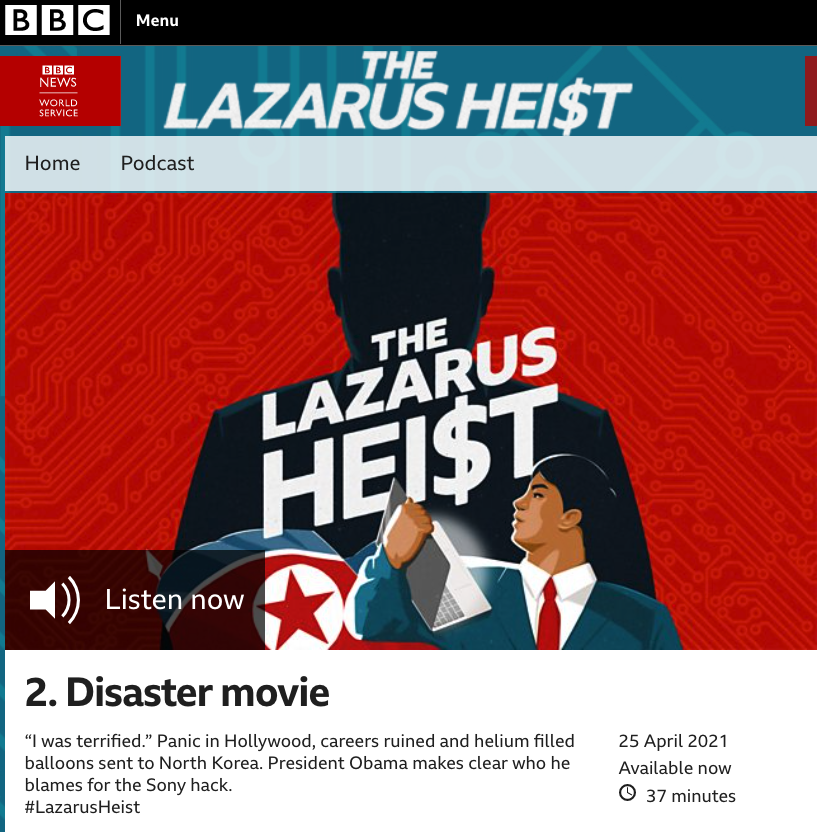












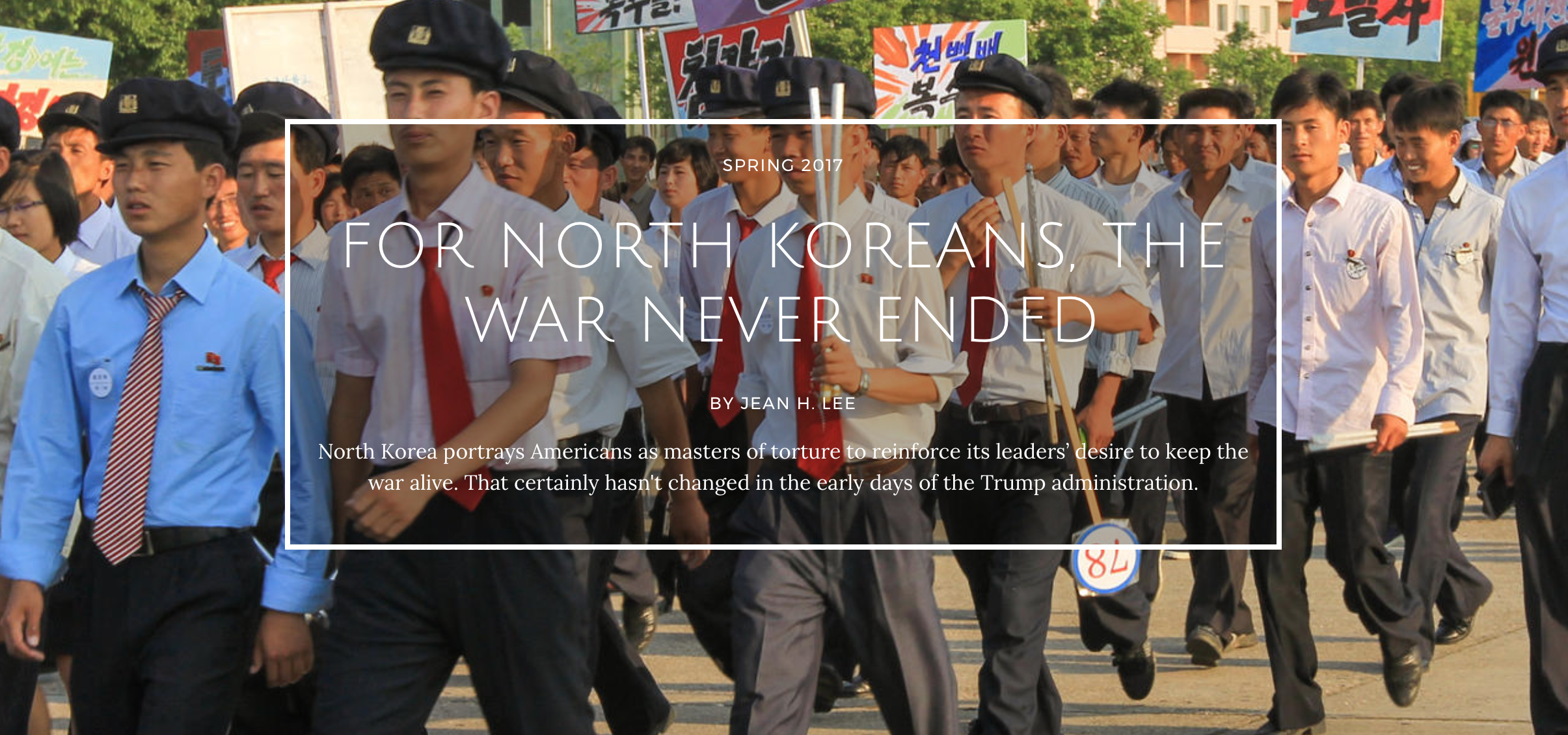


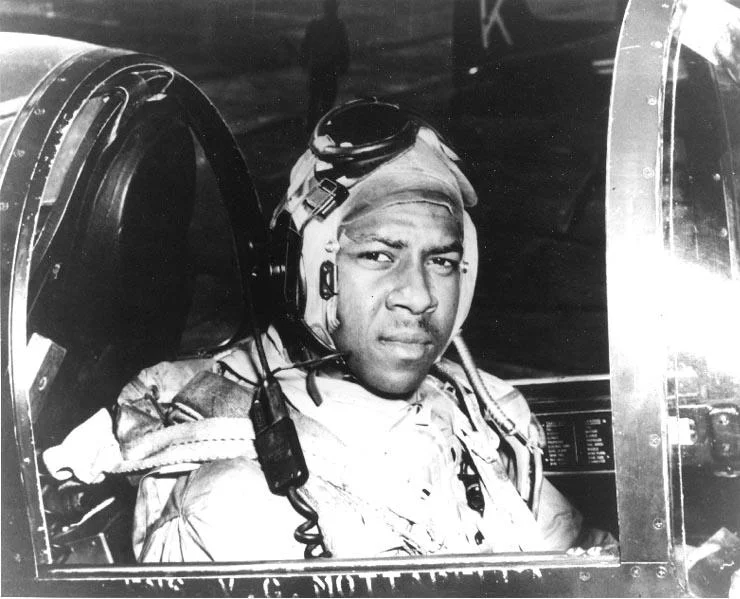
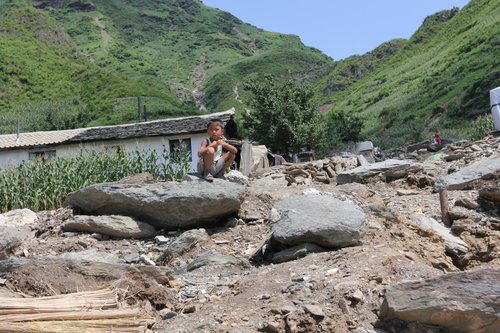


Download all episodes of The Lazarus Heist, watch Lazarus Heist animations, read our feature story about the hackers and view visualizations of the podcast episodes on Lazarus Heist homepage on the BBC World Service website!